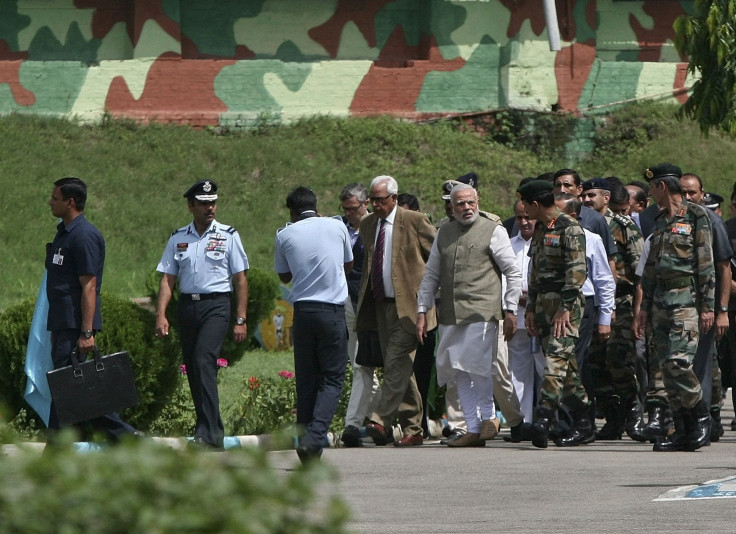Militant Attack On Jammu And Kashmir Army Base Kills 9, Chief Minister Says Timing Is No Coincidence

Update as of 5:13 a.m. EST: At least nine people have been killed in hours-long gunfight between militants and Indian army soldiers in the state of Jammu and Kashmir in northern India, local media reports said Thursday.
Three civilians and three soldiers were among the dead, while two soldiers were wounded in the gunbattle that continued for over six hours, authorities reportedly said.
"Army and the BSF engaged the militants in a sustained gunfight in which three militants have been killed so far. One junior commissioned officer of the army was also killed and four other soldiers were injured," the officer said, according to India Today, a local news outlet.
Militants attacked an army base in the Indian state of Jammu and Kashmir on Thursday, killing one soldier and three civilians, local media reports said. The gunfight between the attackers and soldiers also reportedly claimed the lives of three militants.
A group of four or five militants reportedly entered India from Pakistani territory and attacked an army base near the town of Arnia, about 3 miles from the border with Pakistan, a senior Indian army officer reportedly said. Authorities reportedly added that they had seized a car that might belong to the militants and had cordoned off the base even as firing continued in the area on Thursday afternoon, local reports said. An Indian army official blamed Pakistani troops of helping the militants, according to a report.
"The infiltration attempt was supported by Pakistan Rangers who fired mortar shells at BSF (Border Security Force) positions in Arnia today (Thursday) morning so that the militants could sneak in," the official said, The Times of India, a local newspaper.
The latest attack comes as leaders from countries belonging to the South Asian Association for Regional Cooperation (SAARC) bloc, including Indian Prime Minister Narendra Modi and Pakistan's Prime Minister Nawaz Sharif, are attending a summit in Kathmandu, Nepal, aimed at boosting trade in the region.
On Wednesday, Modi announced several measures to improve trade with neighboring countries, three of which were blocked by Pakistan in a move that put Sharif under pressure to work toward easing tensions between the two countries and facilitate regional trade, local media reports said.
The attack also comes ahead of Modi’s visit to Jammu and Kashmir to address voters and supporters of his right-wing Bharatiya Janata Party on Friday ahead of the second phase of state elections.
The state's Chief Minister Omar Abdullah took to Twitter to speak out against the attack, stating, "Some things will never change," and that it was not a coincidence that the attack occurred while leaders of the two nations were attending a summit. Abdullah added, in another tweet, that security had been stepped up across the state.
NDTV, a local news network, reported that Modi and Sharif exchanged "pleasantries" at the summit but no other discussion took place between the leaders.
© Copyright IBTimes 2025. All rights reserved.





















